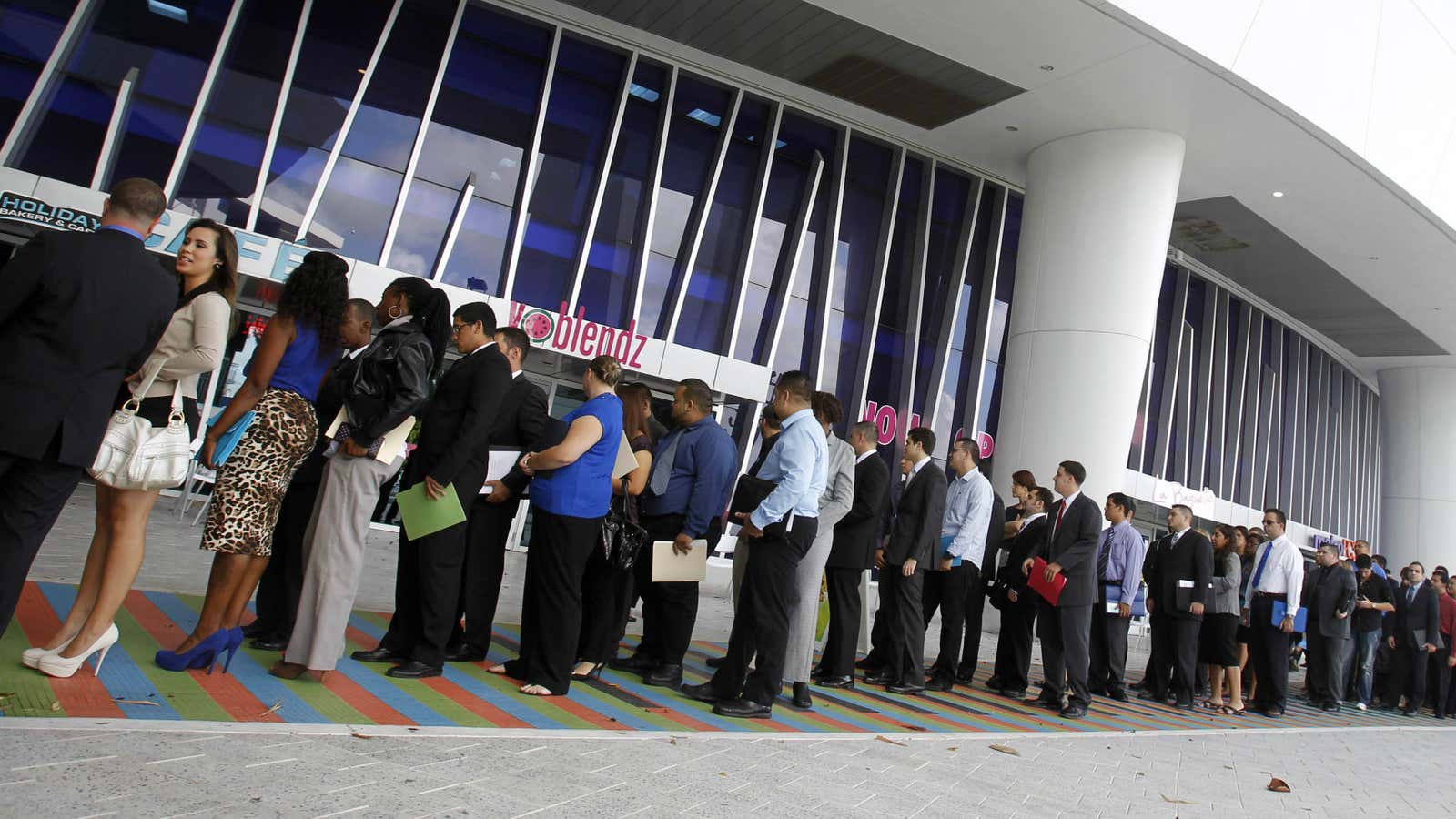In an effort to boost diversity and social mobility, recruiters for accounting and consulting firm Deloitte will not see the names of job applicants’ schools and universities next year in the UK.
They will look instead at data on candidates’ personal and economic backgrounds. The company hopes this will force managers to consider the context of applicants’ achievements—giving priority, for example, to a stellar academic record earned at a less prestigious school. There is a “clear business imperative” to “hire people who think and innovate differently,” Deloitte UK chief executive David Sproul said in a statement.
Deloitte is the largest of 19 companies in the UK that have signed up to use the Contextual Recruitment System, a tool released last year from recruitment firm Rare that gathers this background data. The goal, the firm says, is to “get much closer to achieving the holy grail of identifying candidates with potential, rather than just with polish.”
The advantages of being born into material comfort compound over time—economists call this “opportunity hoarding.” Each privilege acts as a gateway to the next: children who get to attend private grammar schools often move on to the top colleges and then to the top jobs, leaving little room for peers without those advantages to break into the ranks.
And Britain routinely ranks among the least socially- and economically-mobile of developed countries, followed closely by the US. Less intelligent British children from well-off families are still 35% more likely than their brighter-but-poorer counterparts to become high earners later in life, according to recent research commissioned by the UK government. Private-school attendance was also found to boost a child’s future earnings, independently of the academic benefits or qualifications attained there.
Factoring these inequalities into the equation when making hiring decisions is a start, at least, toward fairness.
